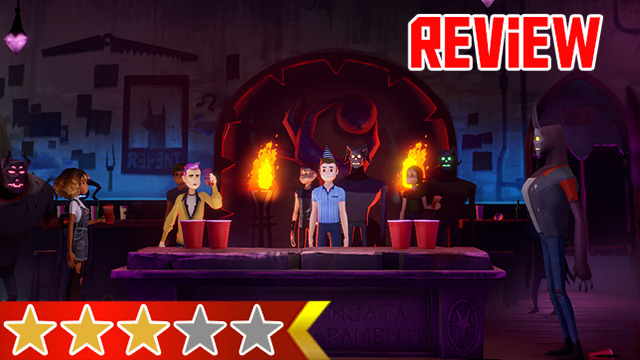Satan is often portrayed as a trickster bent on getting people to commit evil acts and give into their temptations; a personification of sin itself. But he is rarely depicted as a party animal, hellbent on getting his fellow guests to pound shot after shot in his epic, nightly benders while granting life back to those that can outdrink him. AFTERPARTY is a…
-
Energetic soundtrack that faithfully evokes the nightlife scene.
-
Colorful, creative interpretation of Hell.
-
Likeable characters and solid performances.
-
Constant barrage of flat, random jokes.
-
Some threads feel too condensed with rushed endings.
-
Glut of technical issues and bugs.
-
Rhythm mini-game lacks any sort of rhythm.











